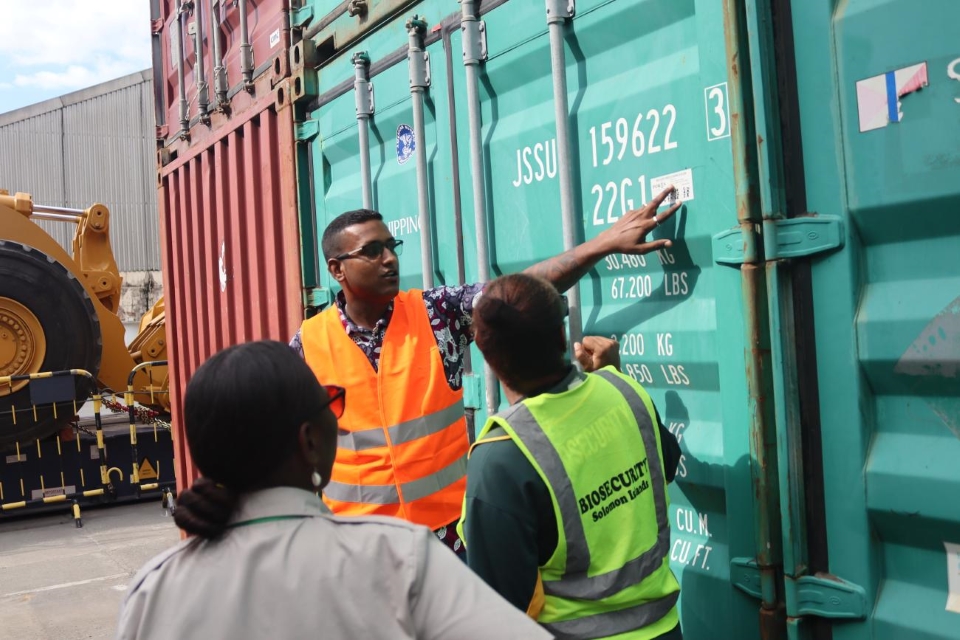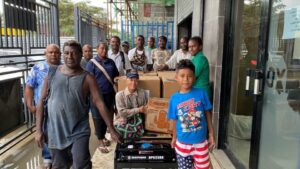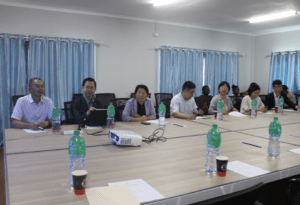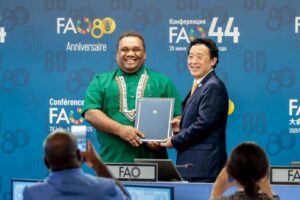SOLOMON Islands takes on invasive pests through biosecurity surveillance and training.
Biosecurity surveillances and trainings were recently held in the Solomon Islands aimed at protecting the country against the emergence of invasive pests and diseases. Carried out by a Pacific Community (SPC) biosecurity team, the training and surveillance addressed both pests and disease threats: beefing up biosecurity in the region.
“The Solomon Islands is an important hub of activity, with high traffic in foreign travellers and tourists,” said SPC’s Biosecurity Officer Riten Gosai. “As we are nearing the Pacific Games in the country, it is important to be prepared. Pests such as the Coconut Rhinoceros Beetle-Guam Type are already ravaging coconut plantations in the countries it is found in. These pests are not only devastating to the economy but take so much away from vulnerable communities that depend on subsistence agriculture.”
During the first week of activities, SPC hosted a seminar session on the increasingly important Sea Container Hygiene System (SCHS) for key Biosecurity Solomon Islands (BSI) Officers, with a team from Nauru Quarantine joining the session virtually. SCHS is a long-term strategy designed to manage biosecurity risks related to shipping containers. The training was the first held on SCHS face-to-face since the COVID-19 pandemic began more than two years ago.
“This important follow-up was based on BSI’s request after the first few SCHS trainings that were held virtually. We had the opportunity to include a field visit to the Honiara Wharf to see how the SCHS operates and discuss ways forward in process improvement and regional collaboration,” said Mr. Gosai.
The training also focused on border inspection, emerging threats, surveillance and field sample collection, processing and submission for identification and authentication from registered laboratories to support regulatory decision-making. Twenty-three BSI officers benefitted, including 40 percent women, breaking new ground for participation to pave the way for protecting the Solomon Islands from foreign pests and diseases.
“BSI and biosecurity bodies across the Pacific play such a critical role in protecting the region’s agriculture, economy, biodiversity, food security and overall human health and livelihoods,” concluded Mr Francis Tsatsia, Solomon Islands Director of Biosecurity. “This is an important opportunity for BSI to strengthen its processes, identify any gaps and address areas to potentially collaborate on and build partnerships.”
The SPC team, through the SAFE Pacific project, will carry out similar biosecurity surveillance and capacity-building training across the region during the next two years of SAFE implementation.
The Solomons activities were part of the Safe Agricultural Trade Facilitation through Economic Integration in the Pacific (SAFE Pacific) project funded by the European Union and implemented by SPC’s Land Resources Division across 15 Pacific countries.
News Source: Pacific Community (SPC), Land Resources Division




